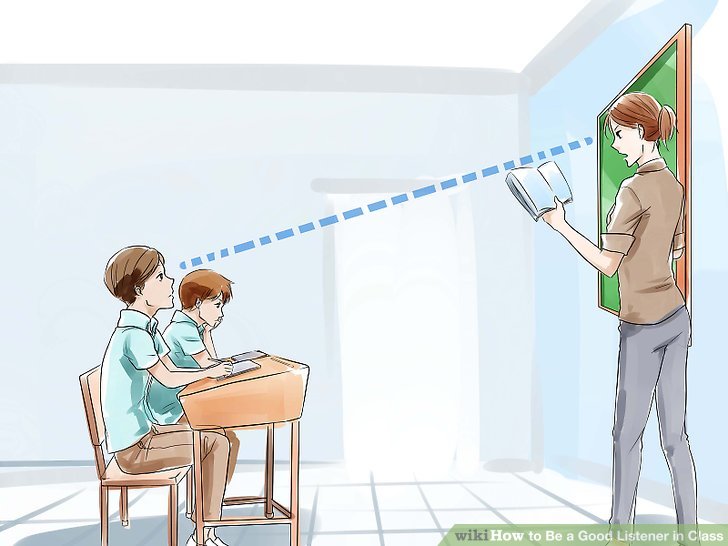Listening in the Online Classroom: How to Be a Good Listener

The importance of listening in an online classroom: Tips and tricks on active listening skills and effective communication. Active listening in class requires work. Listening skills are not something that a person can learn in a day. Improving listening skills is a time-consuming process.
The importance of listening in an online classroom
The daily tasks and relationships of a student within the online classroom will be directly affected by his level of listening. Listening is probably the most important step of communication.
“Listening, not imitation, can be the most sincere form of flattery.” – Joyce Brothers
By listening carefully, you will save time and facilitate relationships within the virtual classroom. Listening will provide answers to most questions without the student having to ask a question. Learning to listen well will also show an awareness of gender and cultural differences. Listening means influencing others, people tend to follow and respect those they feel have listened to attentively and understood.
By Darrendraper
Reception and understanding of class information online
By Kevin Zollman
To hear someone speak is not to listen. The simple task of hearing an audio stimulus is not the same as listening. To open one’s ears to noise is called receiving. In an online class – to receive – a student must read the messages of the class. There are no audio noises but precise words on a screen will be received. The way a student obtains his information is different but must be treated and received in the same way.
Understanding begins to bring the student a little deeper into the listening process in many ways. To understand the information that a student has received, they must associate this information with something they already know, see the speaker’s point of view from the message, ask questions to clarify and finally rephrase the message to the speaker.
Remember and evaluate class information online
In order to understand the instructions given in class, the publication by another person or any type of message received in the online class, the student must remember what he has said for a while. If the information is intended for learning, it must be kept permanently.
In order to remember more effectively, students can:
Use templates in the message to organize the speaker’s sense
Concentrate on the major support of the central message or idea
Repeat things for yourself; phrases or key names
Refer to the original message or write notes
Summarize the person’s message by including all relevant information, but excluding unnecessary words: Go to Lake View Dr. at 6:00 pm. for drinks and fun. Wear your best is a black tie event. This sentence will become: Lake View Dr, 6:00 pm, city attire.
Effective communication and active listening skills are characteristics that need to be assessed for the online learning environment. The virtual classroom or online offers a multitude of nonverbal and verbal communications. to know how to listen.
Memorizing and Evaluating Online Class Information (continued)
Evaluating is essentially about judging the message you read in the online classroom and evaluating the person’s intention. Both an assignment by Extra Ketchup
or a personal message will be received in class and will need to be evaluated. When the teacher gives a homework assignment, assessment comes into play when it’s time to understand what to do. When receiving a personal message, the student evaluates it to see why the speaker has said the message. Example: Professor Cill – Make sure your homework is done on time. The student would think why the teacher said that; Was it because Professor Cill thought the work would be late or because they wanted to remind the student that they were doing such a good job?